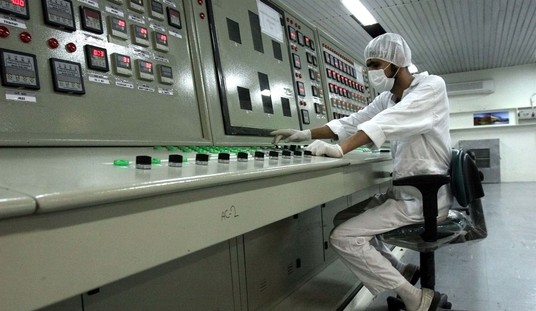WASHINGTON -- When, beginning in 1901, the Supreme Court decided some cases about how the Constitution applied to overseas territories, Mr. Dooley, the meditative bartender created by Finley Peter Dunne, mused that "no matter whether th' constitution follows th' flag or not, th' supreme coort follows th' iliction returns." Actually, the court rarely "follows" election results in the sense of conforming rulings to them. But on the eve of this singular inauguration, the court has agreed to hear a case in which it must follow, in the sense of assess, last November's returns. The case concerns a manifestly anachronistic and therefore now constitutionally dubious provision of the Voting Rights Act of 1965.
That year, because they had used many tactics to suppress voting by blacks, six states and some jurisdictions in other states were required to seek permission -- "pre-clearance" -- from the Justice Department for even minor changes in voting procedures. In 1975, the act was extended to cover Texas and two other states. The act's "bailout" provision, which ostensibly provides a path by which jurisdictions can end federal supervision, is so burdensome as to be often unusable. The pre-clearance requirements, which were originally intended to exist for five years, have been extended four times, most recently in 2006 -- for 25 years. The Senate voted the extension to 2031 unanimously, which is evidence that genuflection had replaced reflection.
Now, however, a Texas utility district that did not exist until 1986 and which has never had a voting-related complaint, says that the bailout provision has been virtually nullified by judicial interpretations. It further argues that the pre-clearance requirement -- arguably the most intrusive law abridging states' sovereignty -- was a response to a vanished emergency and is, after 44 years of racial progress, an indefensible violation of the Constitution's federal structure. The district argues that it "consigns broad swaths of the nation to apparently perpetual federal receivership" based on absurdly out-of-date evidence.
Recommended
In 1966, the Supreme Court said the pre-clearance requirement was a "rational" response to that era's crisis. In 1997, however, the court held that, to be justified, such an infringement of states' self-government must demonstrate "congruence and proportionality" concerning the problem it addresses. The 25-year extension in 2006, which the Texas jurisdiction challenges, is incongruent and disproportionate because it was based on the evidence used for the 1975 extension -- that of the 1972 and some earlier presidential elections. So the 2006 renewal of pre-clearance is itself evidence that there are no contemporary findings of unconstitutional behavior proportional to the VRA's sweeping 1965 remedy. In 2031, which will be 59 years after the 1972 election, Congress probably will reflexively extend this receivership -- unless the court now insists upon the pertinence of evidence.
Speaking of which, Abigail and Stephan Thernstrom -- she of the Manhattan Institute, he a Harvard historian -- say Obama's election demonstrates that another facet of the VRA has lost its original, and even then spurious, rationale. Because "it is no longer possible to argue that racial identity is an insurmountable barrier to the highest office in the land," and because "there are no longer any meaningful racial barriers to voting or holding office in America," it is time to end the unseemly practice of racial gerrymandering to produce "majority minority" legislative districts in order to guarantee the election of minority candidates.
Two years ago, Congress, when extending the act, baldly asserted that discrimination continues to prevent "minority voters from fully participating in the electoral process." Nonsensical then, it is patently so after 2008, when for the first time the rate of black turnout probably equaled and perhaps surpassed the white rate.
Obama won a higher percentage of the white vote than Al Gore and John Kerry got in 2000 and 2004 respectively. Mississippi now has more black elected officials -- not more per capita, more -- than any other state. Yet some civil rights activists, clinging to certitudes and striking poses from glory days long gone, must face the evidently disconcerting fact of their success.
Unfortunately, the civil rights impulse has decayed into coarse political entrepreneurship, exploiting today's racial spoils system -- what Chief Justice John Roberts has termed "a sordid business, this divvying us up by race" for the purpose of separate and unequal treatments. Those who, supposedly celebrating the VRA, say it must not be changed actually are implying that it has not succeeded. The proper way to honor it is by retiring the pre-clearance provision that it has rendered anachronistic.

























Join the conversation as a VIP Member